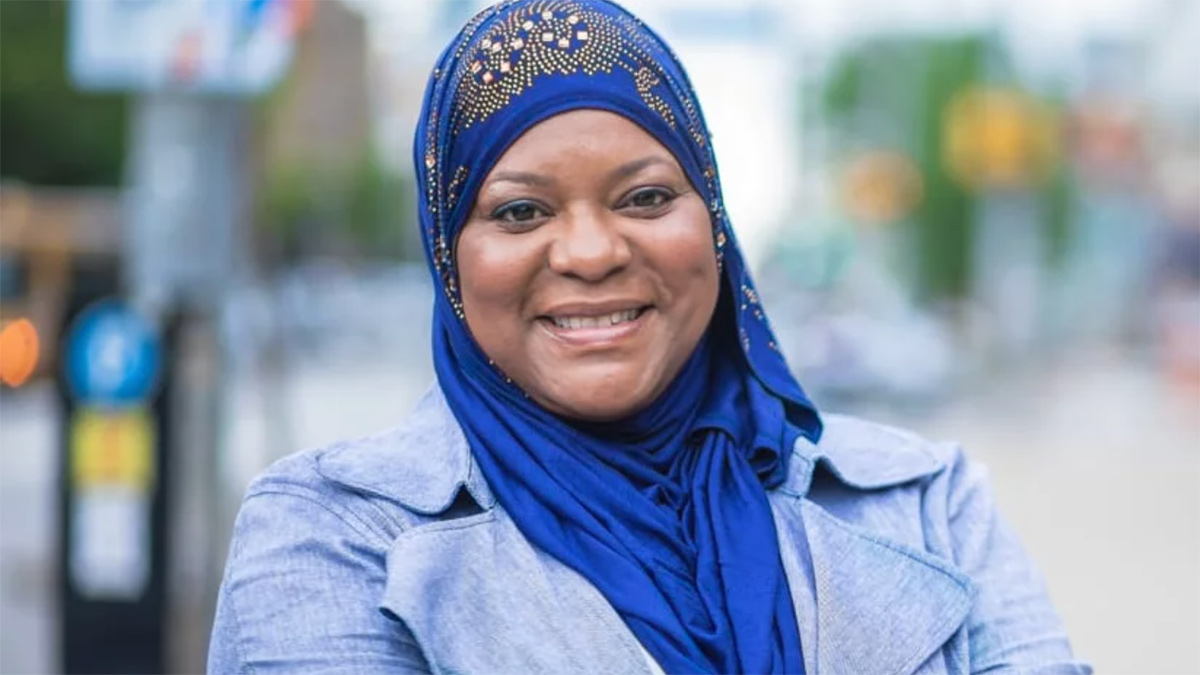Halima Tammy Thompson is using her expertise on poverty to control the narrative. Through her moving documentary We Wear The Mask, Tammy shows viewers what it means to live life impoverished.
How did you find yourself on the path of creating the film, We Wear the Mask?
After living through the life I’ve lived, I wanted to show people just how difficult life can be. Even though I had zero experience in filmmaking, I recognized the power of storytelling and knew this could be a way I’d share the truth behind poverty. My struggles led my career towards the nonprofit circus and I just get so frustrated watching who has control over these life-changing decisions. The “help” sent to create change in these communities doesn’t even understand what needs to be done for improvements to be seen. They don’t understand the necessities needed because they’re not asking or bringing us to the table to share the value of our experience.
So this film sort of happened because I was having an awful tuff year trying to get people to listen; to truly understand these programs will never work. Stop blaming people in poverty. They’re not sitting around just waiting for a check, people want ownership over their lives. I wanted to showcase how these people are working harder than anyone running these so-called programs. The people running these non-profits are so accustomed to numbers, statistics, reports, and research that I think they’ve been disconnected from the fact that struggling people represent those numbers. The hidden faces they aren’t paying attention to, the true side of poverty, needs to be displayed to disrupt the false narrative that’s been around for far too long.
The three women in this film: Dominque, Lu Ann, and Venecia; how did their stories find their way into your hands?
Well at the time when I decided to go through with this idea, I made a simple Facebook post asking, “Are there any women who are interested in sharing their poverty experience with me?”
I thought we might get a few responses, but to my surprise, we got around 60 people wanting to show their connection to poverty. So we ended up doing a few focused groups to narrow down the selected individuals and those three women became our stars. I just have to say, they were the perfect fit to tell this story because even though they didn’t know each other, all of their stories intersected at some point. Their scenarios were diverse with women of different ages, races, and experiences but they all converged in some way.
I’m hearing a lot of relatability to this film from your own life. How so?
I’ve heard so many people say “I didn’t even realize I was poor until we got older”, and you know, I didn’t either. From my perspective, my childhood was great! Both my parents worked almost all the time, so we had lots of freedom and room to run around and play outside. As a kid, that was awesome. But I do remember the winter days when I guess we didn’t have enough money for the coal to heat the house and that coal pile could get low at times. Or how often we were left alone. I always wondered why my parents were never home, but work always had to be their priority.
Eventually, we ended up moving to Pittsburgh when I was around nine or ten because my dad was told by a cousin he had a job waiting for him there in the steel mills. We packed up our car with everything we could fit and my brother, me, my mom, my dad, a dog and $65 had a plan to live with our uncle until we got on our feet. Unfortunately, the day we arrived my dad realized the job wasn’t really there our uncle fell through so ended up being homeless the first day we arrived. We lived in our car in downtown Pittsburgh for a few months before Child Youth Services came and snatched us from the only family we knew. Those were some of my first memories of poverty-related trauma.
You brought up “poverty-related trauma”; what’s the importance that lies within that phrase?
Well, I don’t think we focus on how traumatic poverty is, especially for children. PTSD can and will linger into our adulthood. I still struggle with terrors even as a professional today. Currently, I make decent money and no longer have to worry about food for my family. But that never-ending feeling still finds its way into every financial decision I make. We don’t spend enough time thinking about the physiological scars that’s left on these people. That’s why I feel my purpose is to shine a light on this and create an alternative narrative showing how deep poverty can cut.
What are some misconceptions you’ve seen people have involving poverty?
“They’re not trying to do better, they’re expecting people to take care of them, and they don’t want to work or improve their lives for themselves and their children”. That’s all lies. The reality is most people living below the poverty guidelines work harder than a physically possible. Some work 40+ hours a week and still don’t earn enough to even make ends meet. That’s why I focus on poverty the most because people need to understand how the system truly works and see what systematic oppression has caused. How much are people supposed to work to live? How come the hardest working people can’t afford to take care of their families? That’s society’s issue to figure out and it cannot be put on these individuals to fix that. They didn’t create the issue, so why are they expected to find a solution?
Tiara Cooper






